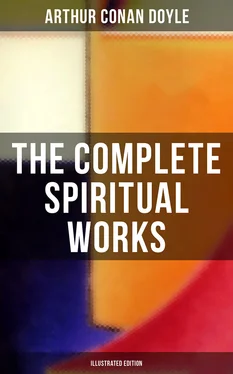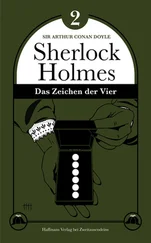So full was our life in Brisbane that there was hardly a day that we had not some memorable experience, even when I had to lecture in the evening. Often we were going fourteen and fifteen hours a day, and a tropical day at that. On January 14th we were taken to see the largest bee-farm in Australia, run by Mr. H. L. Jones. Ever since I consigned Mr. Sherlock Holmes to a bee farm for his old age, I have been supposed to know something of the subject, but really I am so ignorant that when a woman wrote to me and said she would be a suitable housekeeper to the retired detective because she could "segregate the queen," I did not know what she meant. On this occasion I saw the operation and many other wonderful things which make me appreciate Maeterlinck's prose-poem upon the subject. There is little poetry about Mr. Jones however, and he is severely practical. He has numbers of little boxes with a store of bee-food compressed into one end of them. Into each he thrusts a queen with eight attendants to look after her. The food is enough to last two months, so he simply puts on a postage stamp and sends it off to any one in California or South Africa who is starting an apiary. Several hives were opened for our inspection with the precaution of blowing in some smoke to pacify the bees. We were told that this sudden inrush of smoke gives the bees the idea that some great cataclysm has occurred, and their first action is to lay in a store of honey, each of them, as a man might seize provisions in an earthquake so as to be ready for whatever the future might bring. He showed us that the queen, fed with some special food by the workers, can lay twice her own weight of eggs in a day, and that if we could find something similar for hens we could hope for an unbroken stream of eggs. Clever as the bee is it is clearly an instinctive hereditary cleverness, for man has been able to make many improvements in its methods, making artificial comb which is better than the original, in that it has cells for more workers and fewer drones. Altogether it was a wonderful demonstration, which could be viewed with comfort under a veil with one's hands in one's pockets, for though we were assured they would not sting if they knew we would not hurt them, a misunderstanding was possible. One lady spectator seemed to have a sudden ambition to break the standing jump record, and we found that she had received two stings, but Mr. Jones and his assistants covered their hands with the creatures and were quite immune. A half-wild wallaby appeared during our visit, and after some coyness yielded to the fascination which my wife exercises over all animals, and fed out of her hand. We were assured that this had never before occurred in the case of any visitor.
We found in Brisbane, as in every other town, that the question of domestic service, the most important of all questions to a householder, was very acute. Ladies who occupied leading positions in the town assured us that it was impossible to keep maids, and that they were compelled now to give it up in despair, and to do all their own house work with such casual daily assistance as they could get. A pound a week is a common wage for very inefficient service. It is a serious matter and no solution is in sight. English maids are, I am sorry to say, looked upon as the worst of all, for to all the other faults they add constant criticism of their employers, whom they pronounce to be "no ladies" because they are forced to do many things which are not done at home. Inefficiency plus snobbishness is a dreadful mixture. Altogether the lot of the Australian lady is not an easy one, and we admired the brave spirit with which they rose above their troubles.
This servant question bears very directly upon the Imperial puzzle of the northern territory. A white man may live and even work there, but a white woman cannot possibly run a household unless domestic labour is plentiful. In that climate it simply means absolute breakdown in a year. Therefore it is a mad policy which at present excludes so rigorously the Chinese, Indians or others who alone can make white households possible. White labour assumes a dog in the manger policy, for it will not, or cannot, do the work itself, and yet it shuts out those who could do it. It is an impossible position and must be changed. How severe and unreasonable are the coloured immigrant laws is shown by the fact that the experienced and popular Commander of the Naldera , Captain Lewellin, was fined at Sydney a large sum of money because three Goa Indians deserted from his ship. There is a great demand for Indian camel drivers in the north, and this no doubt was the reason for the desertion, but what a reductio ad absurdum of the law which comes between the demand and the supply, besides punishing an innocent victim.
As usual a large number of psychic confidences reached us, some of which were very interesting. One lady is a clairaudient, and on the occasion of her mother falling ill she heard the words "Wednesday—the fifteenth." Death seemed a matter of hours, and the date far distant, but the patient, to the surprise of the doctors, still lingered. Then came the audible message "She will tell you where she is going." The mother had lain for two days helpless and comatose. Suddenly she opened her eyes and said in a clear strong voice, "I have seen the mansions in my father's house. My husband and children await me there. I could not have imagined anything so exquisitely lovely." Then she breathed her last, the date being the 15th.
We were entertained to dinner on the last evening by the Hon. John Fihilly, acting Premier of the Colony, and his wife. He is an Irish labour leader with a remarkable resemblance to Dan O'Connell in his younger days. I was pleased to see that the toast of the King was given though it was not called for at a private dinner. Fihilly is a member of the Government, and I tackled him upon the question of British emigrants being enticed out by specious promises on the part of Colonial Agents in London, only to find that no work awaited them. Some deplorable cases had come within my own observation, one, an old Lancashire Fusilier, having walked the streets for six months. He assured me that the arrangements were now in perfect order, and that emigrants were held back in the old country until they could be sure that there was a place for them. There are so many out of work in Australia that one feels some sympathy with those labour men who are against fresh arrivals.
And there lies the great problem which we have not, with all our experience, managed to master. On the one side illimitable land calling for work. On the other innumerable workers calling for land. And yet the two cannot be joined. I remember how it jarred me when I saw Edmonton, in Western Canada, filled with out-of-workers while the great land lay uninhabited. The same strange paradox meets one here. It is just the connecting link that is missing, and that link lies in wise prevision. The helpless newcomer can do nothing if he and his family are dumped down upon a hundred acres of gum trees. Put yourself in their position. How can they hope with their feeble hands to clear the ground? All this early work must be done for them by the State, the owner repaying after he has made good. Let the emigrant move straight on to a cleared farm, with a shack-house already prepared, and clear instructions as to the best crops, and how to get them. Then it seems to me that emigration would bring no want of employment in its train. But the State must blaze the trail and the public follow after. Such arrangements may even now exist, but if so they need expansion and improvement, for they do not seem to work.
Before leaving Brisbane my attention was drawn to the fact that the State photographer, when he took the scene of the opening of the loan, had produced to all appearance a psychic effect. The Brisbane papers recorded it as follows: —
Читать дальше












